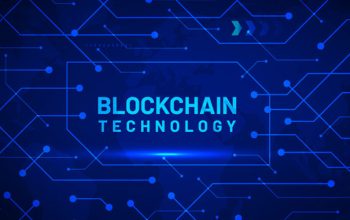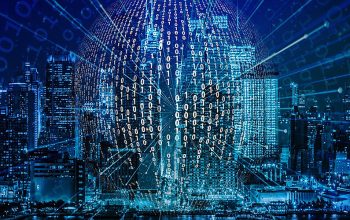Introduction
The convergence of blockchain and the Internet of Things (IoT) is transforming the agriculture industry, revolutionizing processes, and creating new opportunities. By combining the transparency and security of blockchain with the data collection and automation capabilities of IoT devices, agriculture is becoming more efficient, sustainable, and resilient. In this article, we will explore the innovations, benefits, and use cases of blockchain and IoT in agriculture.
The Role of Blockchain and IoT in Agriculture
Blockchain and IoT technologies are reshaping agriculture by enabling secure, transparent, and decentralized data management and automation. IoT devices, such as sensors, drones, and smart machinery, collect real-time data from farms, while blockchain ensures the immutability and integrity of this data. Together, they enhance productivity, optimize resource utilization, and improve decision-making in the agricultural sector.
Data Collection and Analytics
IoT devices in agriculture generate vast amounts of data, capturing crucial information about soil moisture, weather conditions, crop health, and livestock behavior. Blockchain provides a tamper-resistant and decentralized platform for storing and analyzing this data. Advanced analytics and machine learning algorithms can process the data to derive valuable insights, enabling farmers to make informed decisions regarding planting, irrigation, pest control, and more.
Supply Chain Transparency and Traceability
Blockchain and IoT enhance supply chain transparency and traceability in agriculture, ensuring that consumers have access to reliable information about the origin, quality, and journey of food products. By recording every transaction and movement on the blockchain, from seed to shelf, stakeholders can track and verify the authenticity, safety, and sustainability of agricultural products. This transparency builds trust, reduces fraud, and facilitates compliance with food safety regulations.
Smart Farming and Precision Agriculture
Smart farming and precision agriculture leverage IoT devices and blockchain to optimize farming practices. IoT sensors monitor soil conditions, moisture levels, temperature, and crop growth, enabling farmers to implement precise and targeted interventions. Blockchain ensures the integrity and immutability of collected data, providing a trusted source for smart contracts and automating actions such as irrigation, fertilization, and disease detection. This results in optimized resource allocation, reduced waste, increased crop yields, and improved environmental sustainability.
Resource Management and Sustainability
Blockchain and IoT contribute to sustainable resource management in agriculture. IoT sensors monitor water usage, energy consumption, and environmental factors, while blockchain enables transparent and accountable tracking of resource utilization. This data-driven approach helps farmers identify inefficiencies, implement conservation measures, and reduce environmental impact. Blockchain-based incentive systems can also reward farmers for adopting sustainable practices, fostering long-term sustainability in the agricultural sector.
Use Cases of Blockchain and IoT in Agriculture
- Crop Monitoring and Disease Detection: IoT sensors and drone imagery can monitor crop health and detect diseases early. The data is recorded on the blockchain, enabling real-time alerts and targeted interventions to minimize crop damage and optimize yields.
- Livestock Tracking and Management: IoT devices, such as RFID tags and GPS trackers, can monitor the location, health, and behavior of livestock. This data, combined with blockchain, ensures the traceability and integrity of the supply chain, from farm to fork.
- Smart Irrigation and Water Management: IoT sensors measure soil moisture levels, weather conditions, and crop water needs. Blockchain securely records and analyzes this data, enabling precise irrigation scheduling and reducing water waste.
- Certification and Compliance: Blockchain can streamline certification processes in organic farming, fair trade practices, and regulatory compliance. Immutable records on the blockchain verify adherence to standards and simplify auditing procedures.
- Food Safety and Quality Assurance: Blockchain and IoT enable real-time monitoring of temperature, storage conditions, and transport logistics for perishable goods. Any deviations or breaches can be immediately identified, ensuring food safety and maintaining product quality.
Decentralized Marketplaces for Agricultural Products
- Blockchain-Based Marketplaces: Blockchain enables the development of decentralized marketplaces where farmers can directly connect with consumers, eliminating intermediaries and reducing costs. Smart contracts on the blockchain facilitate transparent transactions, ensuring fair pricing and secure payment settlements.
- Quality Verification and Product Authenticity: Blockchain and IoT can provide proof of product quality and authenticity. By recording data related to farming practices, certifications, and supply chain information on the blockchain, consumers can verify the origin, organic certification, and ethical production of agricultural products.
Enhanced Food Safety and Recall Management
- Real-Time Monitoring and Alerts: IoT devices can continuously monitor temperature, humidity, and other environmental factors during the transportation and storage of perishable goods. Any deviations from optimal conditions can trigger real-time alerts, allowing for immediate corrective actions to maintain food safety and quality.
- Efficient Recall Management: In the event of a food safety issue or product recall, blockchain enables efficient traceability of affected products. The immutable records on the blockchain can help identify the specific batches or lots involved, streamlining the recall process and reducing the impact on public health.
Collaborative Data Sharing and Research
- Data Collaboration Networks: Blockchain facilitates secure and privacy-preserving data sharing among different stakeholders in the agriculture sector. Researchers, farmers, and other participants can contribute and access valuable agricultural data, fostering collaboration, innovation, and the development of data-driven insights for improved farming practices.
- Smart Contracts for Research Collaboration: Smart contracts on the blockchain can automate agreements and collaborations between farmers and researchers. These contracts can define the terms, conditions, and compensation for data sharing, enabling fair and transparent collaborations that drive advancements in agricultural research.
Insurance and Risk Management

- Crop Insurance: Blockchain and IoT devices can enhance the efficiency and transparency of crop insurance processes. IoT sensors provide real-time data on weather conditions and crop health, which is recorded on the blockchain. Smart contracts can automatically trigger insurance payouts based on predefined parameters, reducing the administrative burden and ensuring timely compensation for farmers.
- Supply Chain Risk Mitigation: Blockchain’s transparency and traceability capabilities help mitigate risks in the agricultural supply chain. By recording every transaction and movement on the blockchain, stakeholders can identify potential bottlenecks, delays, or disruptions, enabling proactive risk management and ensuring the smooth flow of goods.
Improved Market Access for Small-Scale Farmers
- Digitized Assets and Tokenization: Blockchain allows for the digitization and tokenization of agricultural assets, such as land, crops, or livestock. This enables fractional ownership and opens up opportunities for small-scale farmers to access investment capital, participate in crowdfunding initiatives, and gain market exposure previously limited to larger agricultural enterprises.
- Marketplace Transparency and Fairness: Blockchain-based marketplaces create a level playing field for small-scale farmers by providing transparent pricing, eliminating unfair intermediaries, and enabling direct access to buyers. This empowers farmers to showcase their products, negotiate fair prices, and compete in the global market.
Efficient Resource Allocation and Predictive Analytics
- Optimized Fertilizer and Pesticide Usage: IoT sensors and data analytics can provide insights into soil composition, nutrient levels, and pest populations. By leveraging this data on the blockchain, farmers can optimize the application of fertilizers and pesticides, minimizing waste and reducing environmental impact.
- Weather Forecasting and Crop Planning: Integration of IoT weather stations and blockchain-enabled data storage allows farmers to access accurate and localized weather forecasts. This information enables effective crop planning, ensuring that planting and harvesting schedules align with weather conditions, leading to improved yields and resource efficiency.
Water Rights and Irrigation Management
- Blockchain-Based Water Rights Management: Blockchain can provide a transparent and auditable ledger for tracking water rights and allocations. By recording water usage data on the blockchain, stakeholders can ensure efficient and equitable water management, promoting sustainable irrigation practices and reducing water conflicts.
- Smart Irrigation Systems: IoT sensors and blockchain integration enable smart irrigation systems that optimize water usage based on real-time environmental conditions and crop water requirements. Automated smart contracts can trigger irrigation schedules, reducing water waste and ensuring precise water delivery to crops.
Market Price Transparency and Fair Trade
- Real-Time Market Data: Blockchain can facilitate the collection and dissemination of real-time market data, including prices, demand, and supply information. This transparency empowers farmers to make informed decisions regarding crop selection, pricing strategies, and market entry, ensuring fair trade and reducing information asymmetry.
- Smart Contracts for Fair Trade: Blockchain-based smart contracts can automate fair trade agreements between farmers and buyers, ensuring transparent and equitable transactions. Smart contracts can include conditions related to fair pricing, social sustainability, and environmental standards, fostering a fair and ethical agricultural marketplace.
Carbon Footprint Tracking and Emissions Reduction
- Blockchain-Based Carbon Credits: Blockchain can facilitate the tracking and trading of carbon credits in agriculture. By recording carbon sequestration practices and emission reductions on the blockchain, farmers can earn credits that can be traded on carbon markets, incentivizing sustainable farming practices and mitigating climate change.
- IoT Sensors for Emissions Monitoring: IoT sensors can monitor emissions from farm equipment, livestock, and agricultural processes. By integrating this data with blockchain, farmers can accurately measure and track their carbon footprints, enabling targeted emissions reduction strategies and supporting sustainability initiatives.
Agricultural Research and Intellectual Property Protection
- Secure Data Sharing for Research: Blockchain provides a secure and decentralized platform for sharing agricultural research data. Researchers can publish their findings on the blockchain, ensuring data integrity, reproducibility, and collaboration while protecting intellectual property rights.
- Proof of Ownership and Authenticity: Blockchain-based timestamping and digital signatures can establish proof of ownership and authenticity for agricultural research outputs. This ensures that researchers’ work is protected, acknowledged, and can be securely commercialized, fostering innovation in the agricultural research community.
Conclusion
Blockchain and IoT are revolutionizing the agriculture industry, offering innovations that enhance data collection, supply chain transparency, smart farming, resource management, and sustainability. Through improved analytics, automation, and traceability, farmers can make data-driven decisions, reduce inefficiencies, and deliver high-quality, safe, and sustainable agricultural products. As blockchain and IoT continue to evolve, their impact on agriculture is poised to grow, ushering in a new era of efficiency and innovation in the field.
Pranav is a tech, crypto & blockchain writer based in London. He has been following the development of blockchain technology for several years.




